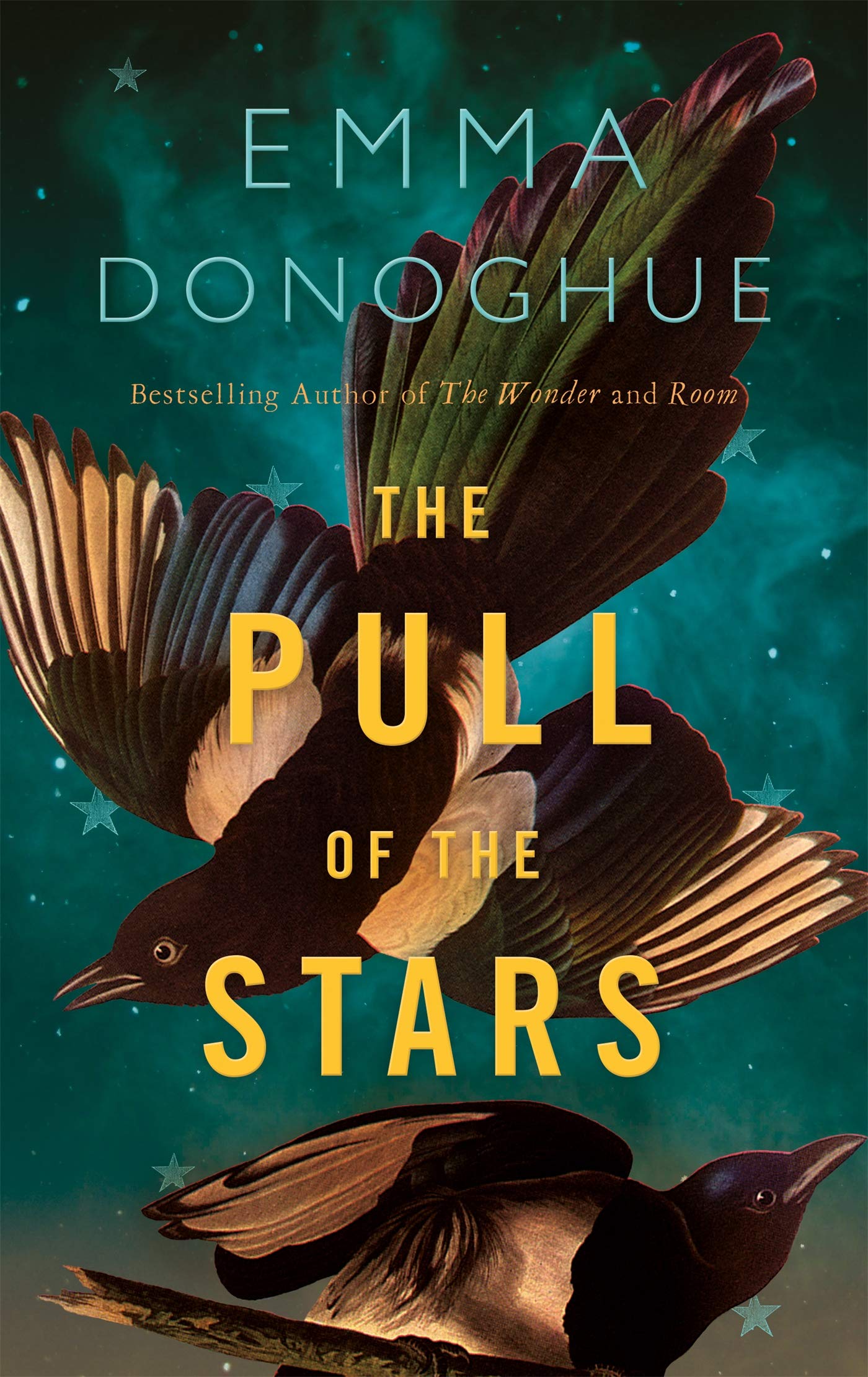In the darkness and intensity of this tiny ward, over the course of three days, these women change each other’s lives in unexpected ways. They lose patients to this baffling pandemic, but they also shepherd new life into a fearful world. With tireless tenderness and humanity, carers and mothers alike somehow do their impossible work.
In The Pull of the Stars , Emma Donoghue tells an unforgettable and deeply moving story of love and loss.
Comment: Since I've enjoyed another book by this author last year, when I saw this at the library I thought to myself I'd try it and I've finally managed to bring it with me.
As a nurse, Julia Power does what she trained to do with as much competence and diligence as she can but the devastation of the war and the flu in 1918 just don't help with the survival rate of the patients in the hospital. Julia is left responsible for the maternity wing while the nurse in charge is ill, but there are challenges ahead of Julia, both related to the patients and with the two new women coming in, the new doctor and the new volunteer. At a time where all efforts seem to be given to people who suffered so much already, will Julia be able to help those in her care? What to expect from the new doctor, will she understand the issues at hand or will she demand things as the other doctors too?
In this book we follow nurse Julia Power in 1918, at the peak of the flu pandemic. She works in the maternity section, especially with pregnant ladies who also have the flu and since she has had the flu, it is believed she won't get it again and that enables her to better help the mothers to be. At the moment the novel begins, she is in charge of three patients who also have the flu which affects their health and, therefore, how their pregnancy might develop.
If there is one thing this book did right was to offer quite a vision of what medicine was in the early 1900s and for that alone I feel glad to live in the 21st century... Once we learn or are knowledgeable about certain things, it is difficult to imagine something else, but the reality described in this book, with the notion of what we know now, makes reading this even more stressful, for the patients clearly go through medical conditions, pregnancy related, which modern medicine and current hospitals probably would help so much better. I also think the narrative style, which is focused on Julia and what she sees in a short span of time, makes us feel a bit claustrophobic and tense, because we want the patients to do well, and when something happens, we cannot stop reading to see what happens to them.
There are three patients in the room and we get to know them a little and infer a lot about their situations. The reality of Ireland, the reality of a woman's role, the reality of medicine, the reality of so many things in such short amount of pages can feel as if too many heavy and tiring and impossible things are presented to the reader, but the author could convey all these things without it being too devastating. I still felt many things for the characters and wish all of them could have had a much better medical treatment but it's a wake up call, with so much we take for granted but it wasn't always so.
While the author does touch many subjects and all could be the focus of several books, I don't mind the quick and apparent simple scenes where we can be influenced to think of them. If the author had delved into them a lot more, the plot might get too heavy or too convoluted and this way I think the precision of the choices helped with the goal of being touching as well as a little shocking.
The focus is on nurse Julia and her own descriptions of things, her reactions, her point of view in regards to the patients but also the doctors and their choices. I liked the introduction of the female doctor (who was a real life person at the time) and how it felt as if she had a better notion of how to better help the patients. I can't tell if this is simply the use of facts based on the actual person or if it was a way to contrast with male doctors treating women regarding issues they weren't experts on (the male doctors were general medicine doctors or surgeons if I remember correctly) but clearly there was an intention of separating things when it comes to the roles of man in women at the time.

No comments:
Post a Comment